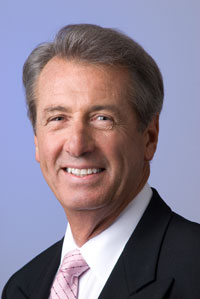Doctors – First, to do no harm
A Guest Blog by Kevin Soden, MD

The latest news reports alleging that multiple prescription drugs have been found in Michael Jackson’s house – some unmarked, others with pseudonyms often used by Jackson and one particular medicine- should send a wakeup call to many in the medical profession, especially those doctors working with or friends with the rich and famous.
It reminds me of the so-called medical professionals who prescribed medicines for Anna Nicole Smith and Elvis Presley to mention just a few of the more prominent names.
Prescription drug abuse is a very serious problem with over 8500 deaths due to prescription drug overdose in 2005 alone.
One of the first principles taught to doctors in medical school is “First, to do no harm.” How does it benefit anyone to be prescribed drugs when there is no real doctor-patient relationship? How can a doctor claim that he is doing good for his friend or patient when drugs are being given when there is no ongoing follow-up, or when there is no treatment plan for a specific illness or when the type of treatment given is outside the normal practice for a given specialty.
Is there any excuse for Michael Jackson to have the very potent drug propofol or Diprivan in his possession? I don’t know how he got this drug but if from a black market source, shame on Mr. Jackson and those selling it to him. If he obtained this drug that should only be used by skilled medical professionals from doctors, shame on these doctors.
Improper prescribing is not confined only to celebrities. Just look at the pain pill clinics – many known as “pill mills” – in Florida where hundreds of powerful pain pills are prescribed without a thorough professional medical exam. NBC Nightly News did a wonderful story showing how people travel from many surrounding states just to obtain hundreds of pain pills that they use to feed a huge habit or sell to others.
It’s time for state medical boards and specialty medical societies to step up, speak out and take action. Both groups should warn their constituent doctors about improper prescription practices and, in the case of the state medical boards, should begin a vigorous investigation of the doctors involved in improper prescribing practices. If guilty, there licenses should be taken away.
It’s also time to pass laws within each state that will allow for prescription monitoring as well as provide the ability to regulate and monitor pain clinics. Mr. Jackson provided a very prominent wakeup call for the problem of prescription abuse but there are thousands of lesser known cases that deserve protection and action as well.

I agree wholeheartedly. Florida just passed a law to have better computer tracking of patients filling narcotic prescriptions from multiple doctors at multiple pharmacies. But I think the problem is more complex than imagined. AHCA also mandated pain as the fifth vital sign. So when do you know that a patient needs pain relief or is using the narcotic for euphoria. Some cases of “doctor shopping” are obvious. Now that I have an established practice that is not accepting new patients, it is less of a problem. I know my patients very well, and know the ones abusing vs. needed for pain. Chronic narcotic therapy is warranted in certain situations (and I am a hospice doctor) but must be documented very clearly and detailed in the office note. Equally difficult is use of amphetamines for ADD vs euphoria. Sometimes not as easy to tell as you would think. Just have to be VERY, VERY careful and assess the patient carefully and follow patient closely. My patients hate me because I make patients getting scheduled meds (including sleeping pills) so frequently. But again, it is MY responsibility to DO NO HARM. And finally, no matter how careful I am (and I am obsessive compulsive about prescriptions for schedule II and III medications) I am still shocked when I get a call from a pharmacist and I find out my DEA number has been used and my signature forged to get 100 Vicoden/Percocet/oxycontin (should ALWAYS be a red flag to a pharmacist!!!)
Enjoyed the post.
Vee Bhide, M.D.
Hey this is a very interesting article! Thanks!